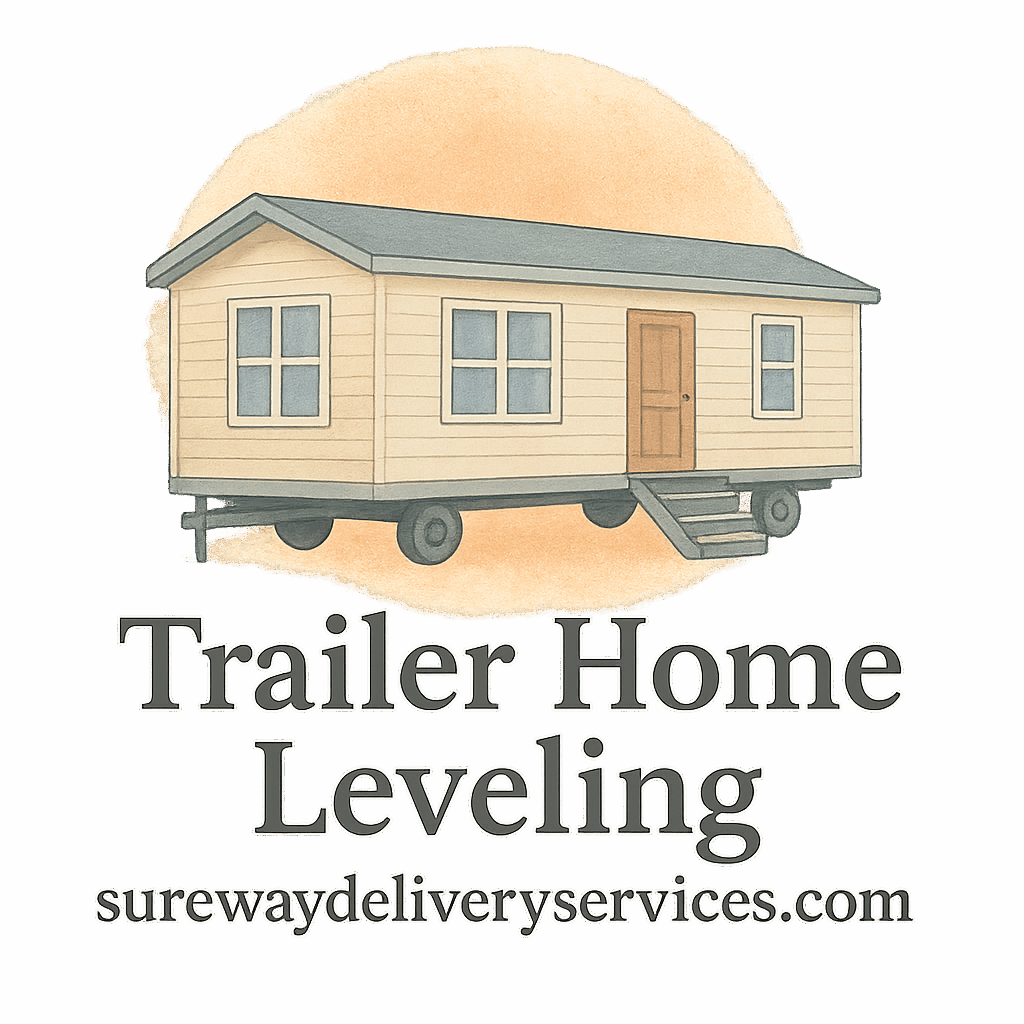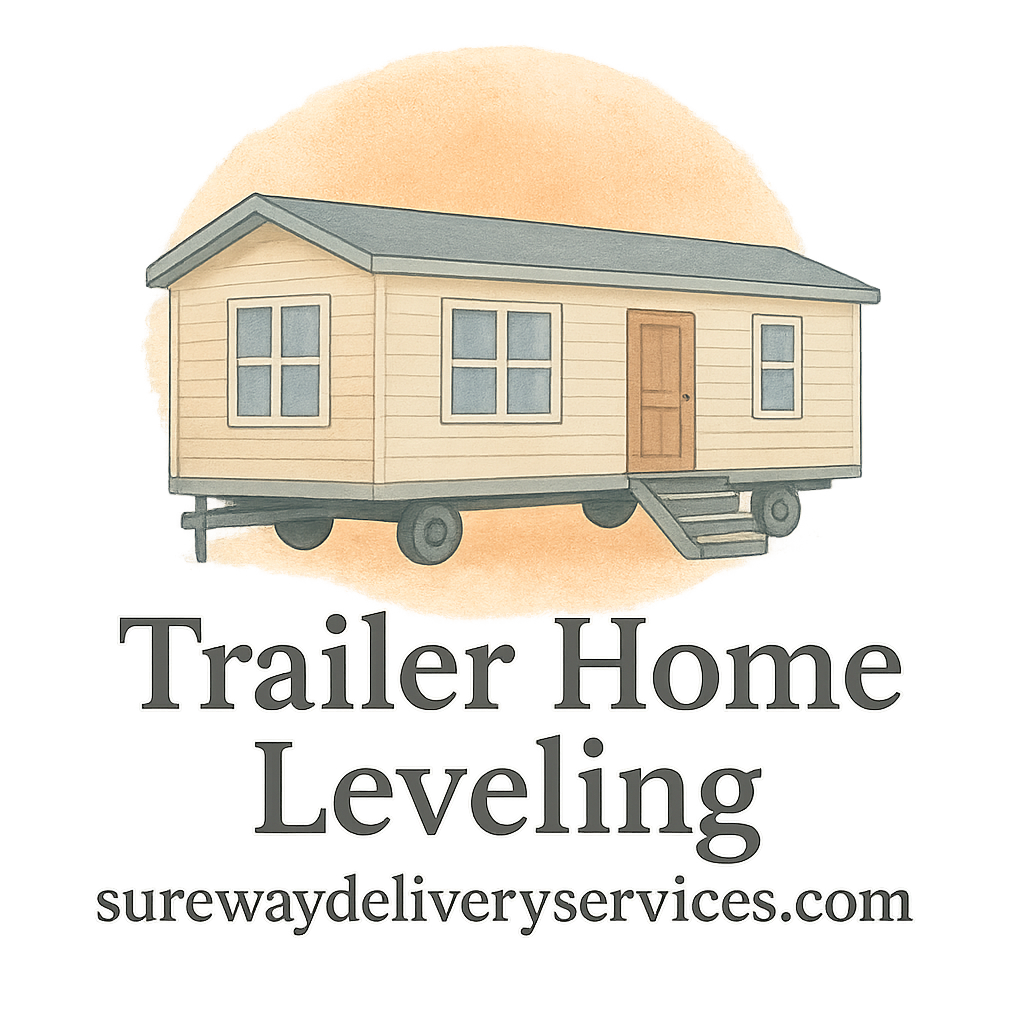Introduction to Trailer Home Leveling
Let’s face it—your trailer home won’t stay perfectly level forever. Over time, due to a mix of environmental, mechanical, and structural factors, your trailer might start to tilt or sink. That’s where trailer home leveling comes into play. It’s not just about comfort—it’s about safety, longevity, and protecting your investment.
For a deep dive into the essentials, check out this Basics Introduction to trailer leveling.
Why Trailer Home Leveling Matters
Avoiding Structural Damage
Trailer homes are built to exact specifications. When they fall out of level, walls shift, ceilings crack, and floors sag. These are not just cosmetic issues—they can lead to serious structural problems.
Protecting Your Investment
Your trailer is your home and possibly one of your biggest investments. Routine inspections can prevent small issues from turning into expensive disasters. Following a trailer maintenance plan is critical here.
1. After Severe Weather Events
Mother Nature can be brutal. Whether it’s a summer storm or a winter freeze, your trailer might be affected more than you think.
Heavy Rains and Flooding
Water saturation softens the soil beneath your trailer, making it unstable. After heavy rain, check your skirting, jacks, and foundation.
Explore how to budget for these repairs in our cost and budgeting guide.
Earthquakes and Windstorms
Strong winds and tremors can knock things off balance—literally. Even if there’s no visible damage, it’s worth a thorough inspection to avoid long-term issues.
2. During Annual Maintenance
Regular Checkups Extend Lifespan
Just like your car needs a yearly tune-up, so does your trailer’s leveling system. Annual inspections ensure early detection of problems and keep everything in check.
Make use of our Annual Tag for maintenance schedules.
Use of Inspection Checklists
A detailed inspection checklist can save you from overlooking important signs. From measuring slope to checking the state of jacks and piers, a list helps cover all bases.
3. When You Notice Sagging Floors
Subtle Shifts Can Be Costly
If you walk through your trailer and feel like you’re walking uphill or downhill, it’s a red flag. Uneven floors can be an early sign that something underneath is giving way.
Addressing Issues Early
Don’t wait for it to get worse. Minor floor dips can signal major leveling problems. Catch them early and you’ll save thousands in repair bills.
Explore effective leveling techniques and methods.

4. After Relocating Your Trailer Home
Settling on a New Foundation
After a move, your trailer might take some time to “settle.” This often involves minor shifts that could lead to misalignment if left unchecked.
Post-Move Adjustments
Always inspect your leveling within the first few days post-move. If you’re unsure how to handle it, consider a trailer service provider.
5. Before and After Renovations
Weight Distribution Matters
Adding a deck, replacing roofing, or even installing new appliances affects how weight is distributed throughout the home.
Reinforcement During Modifications
Get ahead of any settling issues by checking the trailer’s leveling before and after your renovation. A professional service can save your project from future headaches.
Browse service package recommendations.
6. When Cracks Appear in Walls or Ceilings
Understanding Structural Movement
Cracks can form due to shifting. If these appear suddenly, it may be a result of your trailer not being level anymore.
How to Respond to These Signs
Don’t just spackle over the issue. It could be a symptom of a deeper leveling problem. Use our signs tag to identify what to look for.
7. After Noticing Doors or Windows Misaligned
Shifts in Frame Alignment
If doors won’t close properly or windows stick, it’s more than an annoyance—it’s likely your frame is out of square.
Quick Fix vs. Full Inspection
While you can temporarily shave a door or rehang it, the real fix is re-leveling your trailer. Discover what tools can help with this on our tools tag page.
8. When You Hear Creaking or Strange Noises
Identifying Source of Movement
Popping, creaking, or shifting sounds are a telltale sign that something is moving beneath your feet—literally.
When to Call in the Pros
Don’t just chalk it up to an “old trailer.” Contact a professional from our service hiring guide and check out customer reviews before choosing.
Signs Your Trailer Needs Leveling Right Now
- Sloped or uneven floors
- Sticking doors and windows
- Visible cracks in drywall
- Skirting gaps
- Creaking sounds at night
Need more indicators? Visit our trailer issues tag.
Choosing the Right Tools and Techniques
Common Leveling Tools Used
From bubble levels and water levels to hydraulic jacks and shims—having the right equipment makes a world of difference. Browse recommended jacks.
Professional vs. DIY Trailer Leveling
Doing it yourself is doable for minor adjustments, but large shifts require expertise. Find out which approach works best for your situation on our DIY vs. service comparison.
How to Avoid Overpaying for Trailer Home Leveling Services
Red Flags for Overcharging
Watch out for vague estimates, rushed inspections, and unnecessary upsells. These are classic overcharge tactics.
Reading Customer Reviews and Success Stories
Always research before hiring. Our success stories and customer reviews will guide you toward trustworthy pros.
Conclusion
Trailer home leveling isn’t something you can ignore. Whether it’s after a storm, during your annual checkup, or right after renovations, knowing when to inspect your trailer’s home leveling can save you from stress and massive repair bills.
So the next time your trailer squeaks, your doors jam, or your floor dips—don’t brush it off. It might be time to inspect and re-level. Stay ahead by following expert insights from Trailer Home Leveling.
FAQs
1. How often should I inspect my trailer’s leveling?
At least once a year, or after any major event like a storm or renovation.
2. What’s the first sign my trailer is no longer level?
Sagging floors and misaligned doors are the most common early indicators.
3. Can I re-level my trailer myself?
Yes, but only for minor issues. For major problems, professional help is strongly advised.
4. How much does trailer leveling typically cost?
It varies, but you can find pricing tips on our cost tips tag.
5. What tools do I need for leveling a trailer home?
Hydraulic jacks, shims, levels, and sometimes laser guides. Full list available under tools.
6. Is trailer leveling covered by insurance?
Sometimes, especially if it’s due to a natural disaster. Check with your provider.
7. What’s the best time of year to level a trailer?
Early spring or fall—before extreme weather sets in.


